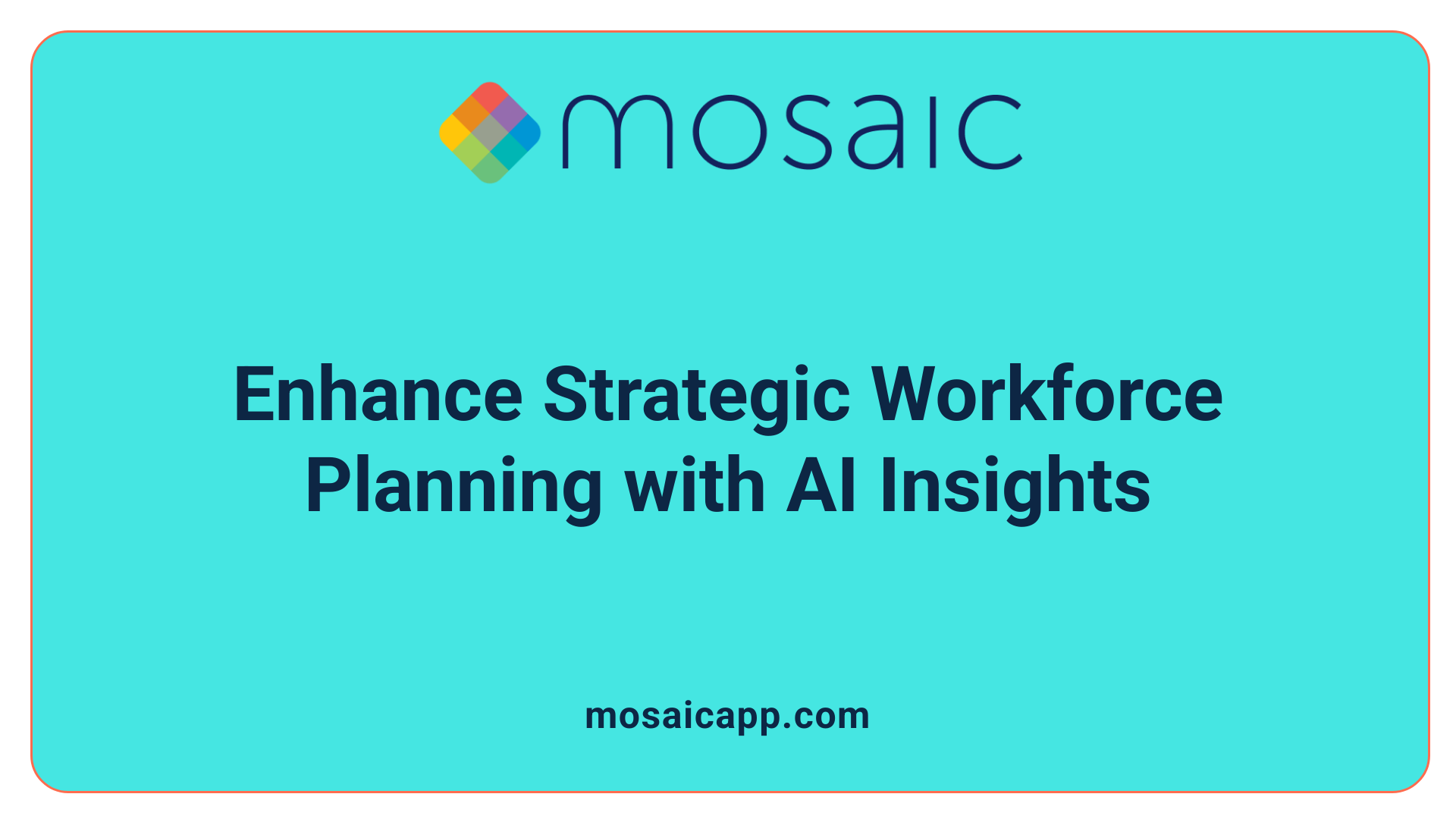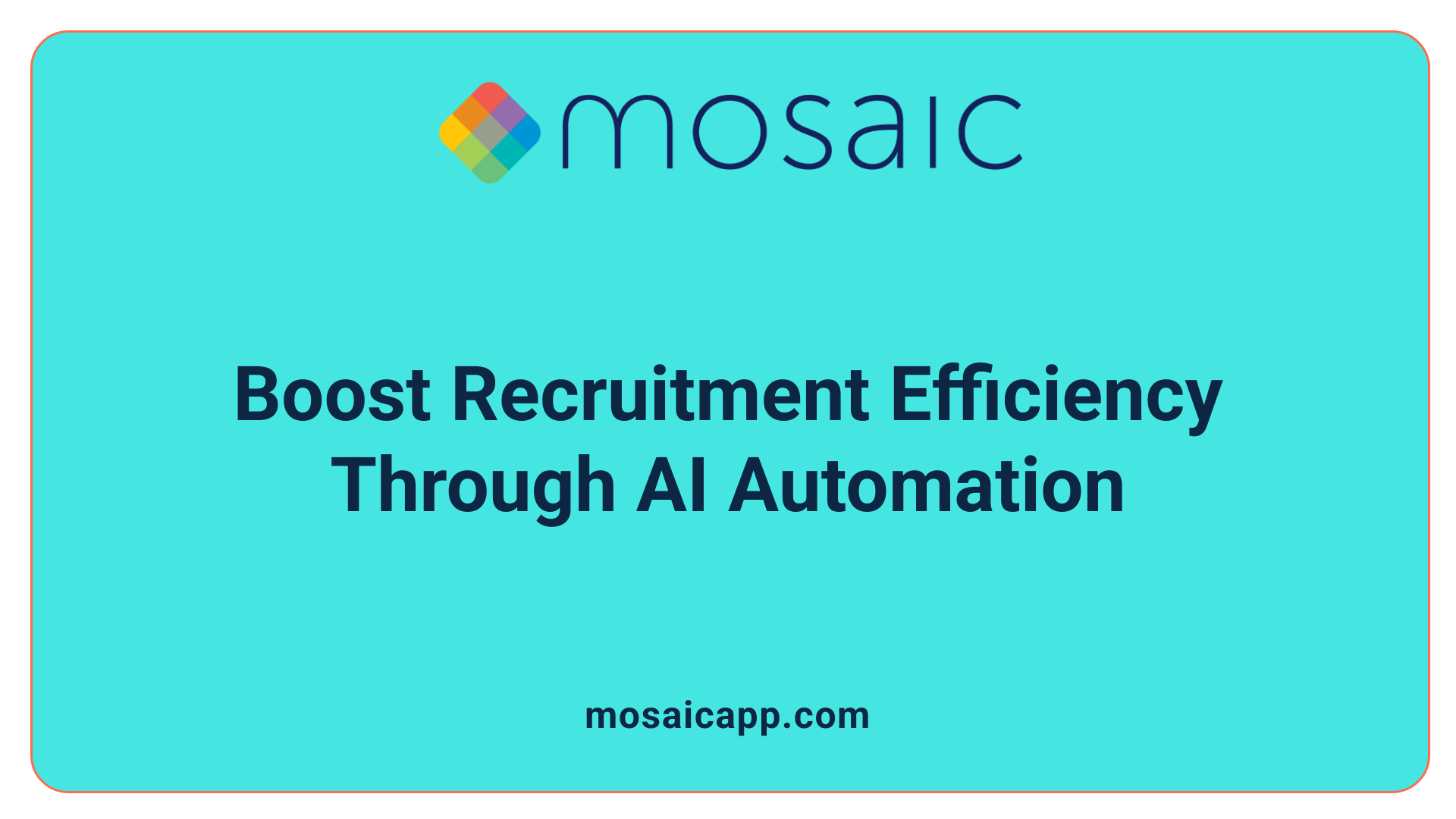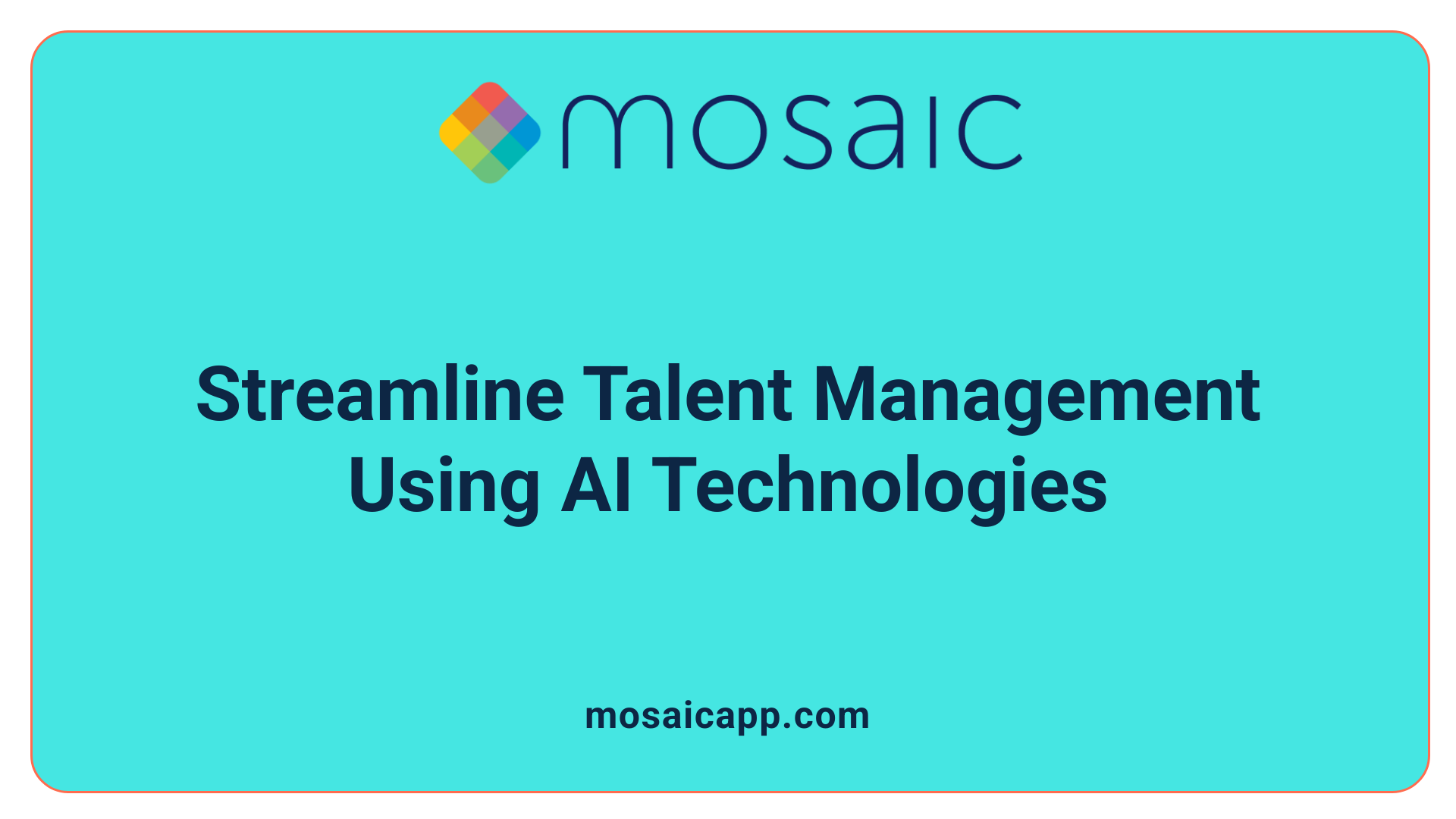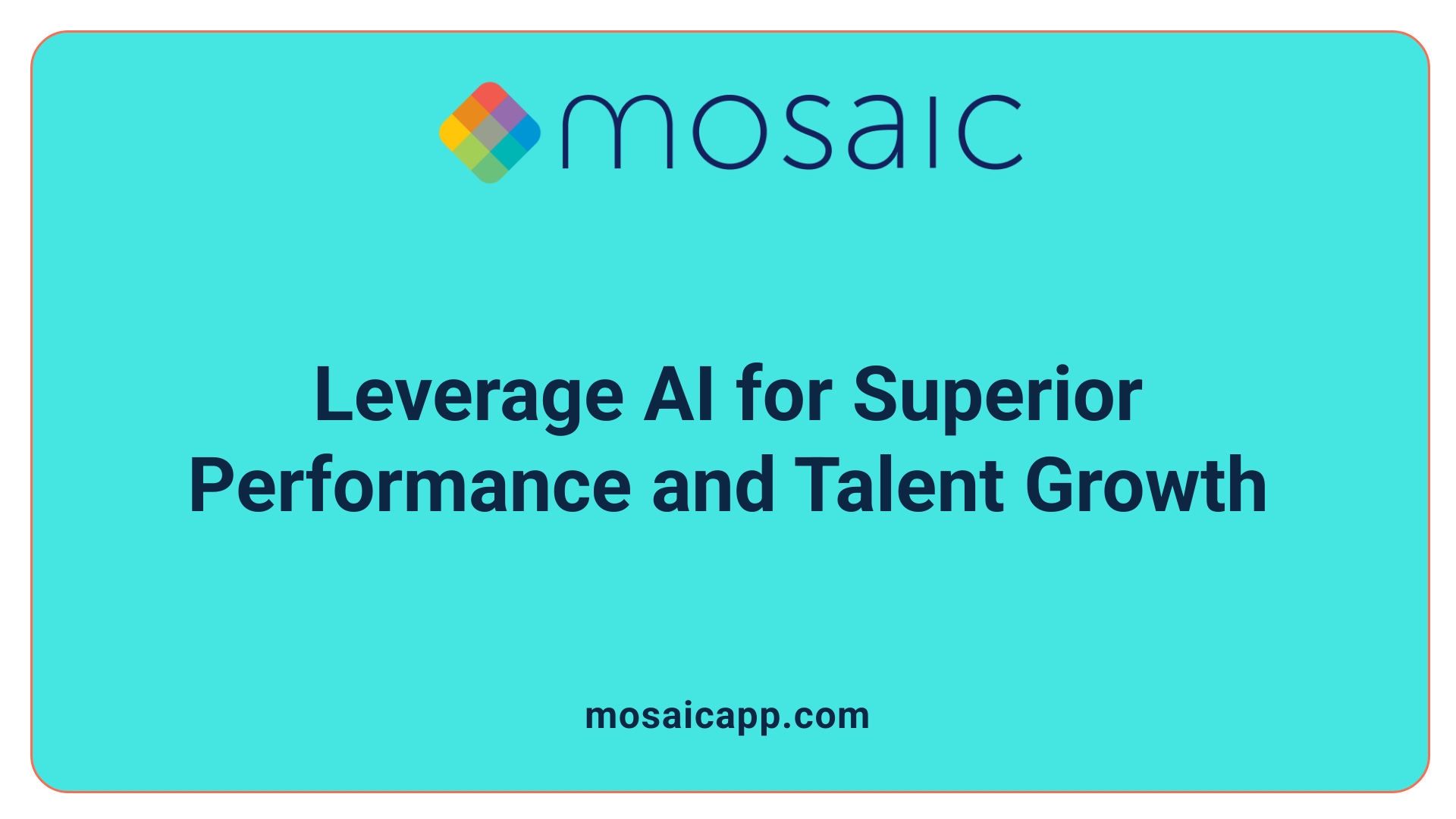Transforming HR with Artificial Intelligence
In today’s rapidly evolving business landscape, leveraging artificial intelligence in workforce management and recruitment has become vital for organizations aiming to make smarter, faster, and fairer hiring decisions. This article explores how AI-powered planning, forecasting, and talent management tools are reshaping recruitment strategies, enhancing operational efficiency, and preparing organizations for future workforce trends.
Strategic Workforce Planning with AI Forecasting

How can AI-powered forecasting and planning tools enhance hiring decisions?
AI-driven workforce planning tools are transforming the way organizations approach staffing and talent management. They analyze vast amounts of operational data—such as attrition rates, shrinkage, and full-time equivalencies—to develop precise long-term staffing forecasts. This capability enables organizations to plan for seasonal peaks, new product launches, or other significant business events months or even a year in advance.
Forecasting models leverage historical data and machine learning algorithms to predict future workload volumes and customer interaction levels. These predictions improve staffing accuracy, reducing shortages or overstaffing risks. Scenario modeling further allows HR teams to simulate various business conditions, helping them understand how different scenarios—like market downturns or growth phases—may impact staffing needs.
Integrating real-time data from workforce management systems enhances decision-making by providing current, comprehensive insights. This dynamic information flow helps prevent reliance on outdated or siloed data, facilitating agile adjustments to staffing plans.
By utilizing these AI tools, organizations can proactively align their workforce with strategic business objectives. As a result, companies are better equipped to meet operational demands, optimize resource allocation, and ensure a more resilient, adaptable workforce.
Enhancing Recruitment Efficiency with AI Tools

How do AI tools automate manual recruitment tasks?
AI-powered recruitment platforms significantly streamline the hiring process by automating time-consuming manual tasks. These tools handle resume screening, generate job requisitions, and schedule interviews automatically. For example, applicant tracking systems equipped with AI analyze resumes and match them with job descriptions, reducing the workload for HR teams. Furthermore, AI-driven platforms like Metaview can transcribe interviews, summarize candidate responses, and collect feedback, making high-volume recruitment more manageable.
How do AI solutions improve candidate sourcing, screening, and scheduling?
AI enhances candidate sourcing by analyzing vast pools of data to identify suitable candidates based on skills, experience, and cultural fit. Screening is refined through machine learning algorithms that rank and shortlist candidates effectively, reducing bias and increasing fairness. Additionally, these technologies facilitate scheduling interviews efficiently, coordinating between candidates and recruiters in real time, thus speeding up the recruitment cycle.
What is the role of AI in applicant tracking systems and integration?
AI integration within applicant tracking systems (ATS) optimizes the entire hiring pipeline. These systems analyze resumes, job descriptions, and historical hiring data to identify top candidates, surface transferable skills, and minimize unconscious bias. Metaview, for instance, integrates seamlessly with existing ATS and CRM platforms, providing customized reports, structured interview summaries, and rubrics that improve decision-making.
How do AI tools promote diversity and reduce bias?
AI tools are designed to promote diversity by focusing on skills and qualifications rather than biased human judgments. They analyze candidate data in a way that reduces implicit biases, fostering more equitable hiring practices. By generating data-driven insights and equitable recommendations, AI helps create a more inclusive workforce, expanding candidate pools and supporting fair evaluation processes.
Here's a quick overview:
Tool/Feature Capabilities Impact Automation Resume screening, interview transcription, scheduling Time-saving, reduces manual workload Candidate Sourcing & Screening Skills analysis, bias reduction, ranking Fairer, faster candidate selection ATS AI Integration Custom reports, structured summaries, transferability Better decision-making Diversity & Fairness Bias minimization, broad candidate pools Inclusive hiring practices
AI in Talent Management and HR Decision Processes

How is AI applied to talent management and HR decision-making?
Artificial Intelligence plays a transformative role in modern HR by automating routine tasks such as resume screening, candidate sourcing, and onboarding. This automation speeds up recruitment processes and improves accuracy by analyzing resumes, job descriptions, and historical hiring data to identify the best candidates. AI models can also forecast future workforce needs, helping organizations plan long-term staffing for seasonal peaks or new product launches.
AI-powered tools analyze operational data to predict workload and interaction volumes, supporting efficient scheduling and staffing. Scenario modeling allows companies to simulate different business conditions, giving insights into how staffing requirements may shift under various circumstances. Moreover, integrated real-time data from workforce management systems ensures that HR decisions are based on the most current information, avoiding outdated or siloed data.
In addition, AI enhances the candidate and employee experience through personalized job recommendations, tailored training programs, and continuous skill assessment. It identifies skills gaps and suggests development paths, fostering ongoing growth. Performance management is also revolutionized by AI, which analyzes employee data to recognize high-potential individuals and recommend promotions or pay adjustments.
Furthermore, predictive analytics assist in retention efforts by monitoring engagement levels and market trends, reducing turnover. AI's ability to surface top candidates proactively and support diversity initiatives by reducing bias while promoting equitable evaluation emphasizes its powerful influence across HR functions.
How does AI support automated candidate sourcing and onboarding?
AI-driven applicant tracking systems facilitate candidate sourcing by analyzing resumes and matching them to job descriptions, ensuring a broader and more qualified candidate pool. Platforms like Metaview automate interview transcription, summarization, and feedback collection for high-volume recruitment, integrating seamlessly with existing systems. This streamlines onboarding by providing structured insights into new hires and their skills.
How does predictive analytics improve talent forecasting?
By leveraging historical data and machine learning algorithms, AI models forecast future recruitment needs and skill requirements. This proactive approach allows organizations to plan hiring, internal mobility, and reskilling initiatives well in advance, aligning workforce capabilities with business objectives.
How does AI enable personalized development and training?
AI analyzes individual performance and learning preferences to create customized development plans. It recommends specific courses and adaptive training modules, providing real-time feedback to maximize employee growth. This tailored approach enhances engagement and accelerates skill acquisition.
How does AI address bias mitigation and fostering diversity?
AI tools assist in promoting diversity by reducing unconscious bias during candidate sourcing and evaluation. They promote equitable candidate pools through anonymized screening and standardized evaluation metrics, helping build more inclusive teams.
Aspect AI Application Impact Additional Details Candidate Sourcing Resume analysis, matching algorithms Quicker, more diverse pools Automates initial screening to reduce bias Onboarding Automated documentation, structured assessments Consistent onboarding process Enhances new hire integration Talent Forecasting Predictive models for future needs Strategic staffing Supports long-term workforce planning Employee Development Personalized learning paths Skills enhancement Continuous, adaptive training Diversity & Inclusion Bias mitigation tools Fair evaluation Promotes equitable opportunities
AI’s integration into talent management enhances efficiency, fairness, and strategic decision-making. While promising, organizations must address challenges like data quality, privacy, and transparency to fully realize its benefits.
Impact of AI on Workforce Planning and Future HR Trends

How is AI transforming strategic workforce planning?
AI is dramatically changing the landscape of workforce planning by providing organizations with tools to analyze current data and forecast future staffing needs. Through machine learning algorithms, companies can predict workload volumes and identify skill gaps before they become critical issues. This capacity allows for more precise planning over months or even years, such as preparing for seasonal peaks or upcoming product launches.
What role do automation and predictive analytics play in HR?
Automation streamlines routine HR tasks like resume screening, interview transcription, and candidate assessment. Predictive analytics, powered by historical and real-time data, enable HR teams to forecast workforce trends, enhance hiring accuracy, and reduce bias. These tools help create adaptable staffing models that respond quickly to changing business conditions.
How are AI agents and digital workers reshaping roles?
AI agents and digital workers assist in executing repetitive processes, freeing up human resources for strategic initiatives. For example, platforms like Metaview automate interview summaries and feedback, making large-scale recruiting more efficient. As AI takes on these responsibilities, job roles evolve, demanding new skills such as AI literacy and change management capabilities.
What shifts are occurring in skills and HR capabilities?
The integration of AI necessitates a shift in workforce skills, emphasizing digital fluency and continuous learning. HR departments are now focusing on personalized development programs, using AI to recommend tailored training and monitor progress. This transformation fosters a more agile, knowledgeable workforce better equipped to adapt to technological advances.
Aspect Impact Future Trends Workforce Planning Data-driven forecasting; scenario modeling Long-term, strategic planning with AI insights Automation & Analytics Reduces administrative tasks; enhances decision-making Increased reliance on real-time, predictive data AI Agents & Digital Workers Automates routine tasks; improves efficiency Expansion of AI support roles in HR functions Skills & Capabilities Focus on digital skills; continuous learning Development of AI literacy; new HR competencies
Overall, AI's rapid adoption in HR not only improves operational efficiency but also prompts a reimagining of workforce strategies. Organizations are increasingly leaning on AI to foster agility, develop future-ready talent, and maintain competitive advantage in a constantly evolving employment landscape.
AI-Driven Performance and Talent Development

How does AI revolutionize performance management and talent development?
AI significantly transforms the way organizations manage employee performance and develop talent. By analyzing real-time data from various sources, AI identifies high-potential employees who demonstrate strong capabilities and growth potential. This enables proactive talent development and better talent retention.
AI tools provide continuous feedback, allowing managers and employees to understand performance levels instantly. They also facilitate personalized learning paths by recommending tailored training courses and adaptive programs that suit each employee's needs.
Promotion and compensation decisions are increasingly data-driven with AI. The systems analyze performance metrics, skill development, and potential indicators to offer recommendations that align with strategic workforce goals. This helps HR teams make fairer, more accurate decisions.
Supporting employee reskilling is another crucial aspect. AI helps identify skills gaps through ongoing assessments and industry trend analysis. It suggests targeted reskilling programs and learning opportunities to prepare employees for future roles or industry changes.
Overall, AI fosters a culture of continuous growth and development. It enhances talent management strategies by surfacing deep insights into workforce capabilities, enabling companies to retain top talent and maintain a competitive edge.
The Ethical and Practical Challenges of AI in HR
What challenges are associated with AI integration in HR systems?
Despite its numerous advantages, incorporating AI into human resources functions also raises important ethical considerations and practical hurdles. One significant concern is bias and fairness. AI models trained on historical employee data can inadvertently learn and perpetuate existing biases related to gender, race, or age. This can lead to unfair hiring practices, biased performance evaluations, or unequal opportunities.
Another challenge is data privacy and security. HR departments handle sensitive employee information such as personal details, salary data, and performance metrics. Ensuring this data remains confidential and protected from breaches is vital. Organizations must implement strong security measures and comply with privacy regulations to safeguard this information.
Transparency and explainability are also critical issues. Employees and HR professionals need to understand how AI systems make decisions—whether it’s in recruitment, promotions, or performance reviews. Without clear explanations, there can be mistrust or perceptions of unfairness.
Addressing these challenges demands ongoing effort. Regularly monitoring AI outputs helps identify and correct biases. Developing transparent AI models and algorithms fosters trust. Additionally, organizations should adopt ethical standards and best practices, ensuring AI enhances fairness and supports responsible HR management.
Overall, while AI offers transformative potential for HR processes such as talent acquisition, workforce planning, and employee development, careful attention to ethical challenges is essential to harness its full benefits responsibly.
The Future of HR Powered by AI
Artificial intelligence is transforming every facet of human resources, from strategic workforce planning to daily recruitment activities and employee development. Its capacity to analyze complex datasets, automate mundane tasks, and provide actionable insights enables organizations to make smarter, faster, and fairer HR decisions. While challenges such as bias, privacy, and transparency remain, ongoing advancements in ethical AI practices promise a future where HR functions become more agile, inclusive, and aligned with organizational goals. As AI continues to evolve, organizations that embrace these technologies will be better equipped to navigate the future workforce landscape, ensuring sustained growth and competitiveness.
References
- Why AI-powered capacity planning is key to smarter ...
- The 9 best AI hiring tools for smarter recruitment in 2025
- Make Smarter Talent Decisions
- How AI Is Revolutionizing Talent Development
- How AI Is Transforming Talent Management
- Where AI Can — and Can't — Help Talent Management
- Revolutionizing Talent Management And Employee ...
- AI in HR: Applications, Benefits, and Examples
- Strategic workforce planning in the age of gen AI
